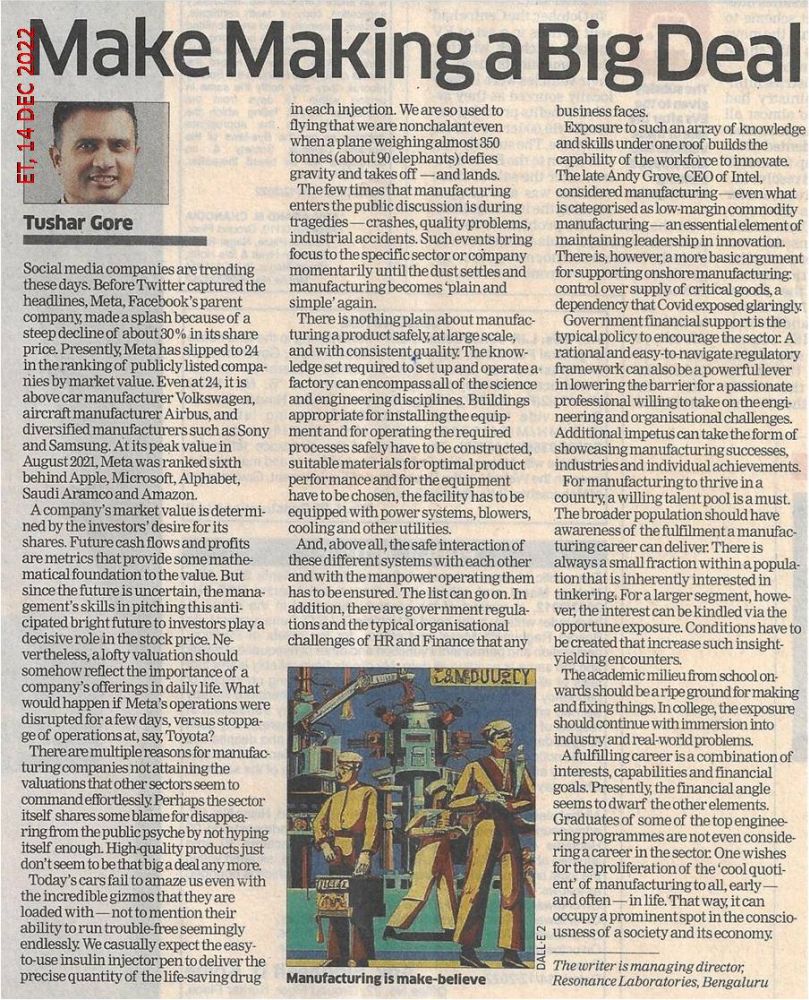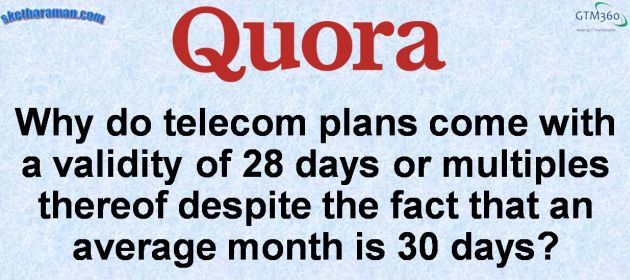Dear Editor of Economic Times:
This has reference to the op-ed entitled Make Making A Big Deal by Tushar Gore in today’s Economic Times.
Every time I see the metro being built just outside my building complex, I’m fascinated by the complexity and number of moving parts involved in the construction. Therefore, I fully agree with Mr. Gore that “there is nothing plain about manufacturing”.
However, moments after the fascination wears off, I realize that New York, London, Berlin and other global cities built their metros nearly a century ago.
When I did my Chemical Engineering in the mid 1980s, soda ash was manufactured using the Solvay Process. Over 35 years later, soda ash is made with the same Solvay Process even today. (Did I mention that the said process was invented by the Belgian chemist named Ernest Solvay in the 1860s?)
There’s nothing fundamentally different about ICE technology today compared to when it was invented over 100 years ago. Even EV technology was invented in the 1930s even if the product based on the technology has started gaining traction only in the last decade. (Some would attribute that to Elon Musk / Tesla, but I digress.)
 I could go on and on but my point is that, while manufacturing is not simple, its complexities have been solved long ago. That’s why nobody talks about it.
I could go on and on but my point is that, while manufacturing is not simple, its complexities have been solved long ago. That’s why nobody talks about it.
This contrasts sharply with technology where there’s a constant stream of new programming languages, databases, devices, deployment models, and other innovations. Also, with the rising digitalization of everyday activities, technology touches the common person in ways that manufacturing does not.
As a result, manufacturing is not in the limelight whereas Big Tech dominates public discourse. I’m guessing that’s why the same ET that has a separate section on “Startups and Tech” in virtually every weekday edition of its newspaper does not carry a similar section about manufacturing with the same frequency.
Since manufacturing is not in the limelight, investors don’t think about it so much. Ergo, going by the author’s own take that a company’s market value is determined by investors’ desire for its shares, it’s obvious why the manufacturing sector cannot enjoy the frothy valuations of Big Tech.
The author asks, “What would happen if Meta’s operations were disrupted for a few days, versus stoppage of operations at, say, Toyota”?
By not answering this question, the author seems to think it’s rhetorical.
But, IMO, it’s more nuanced than that:
- The common man would notice Meta’s disruption more than Toyota’s.
- Nobody gets realtime delivery of Toyota cars, so a stoppage of its operations will at worst delay delivery by a few days, so even Toyota’s customers won’t notice the stoppage all that much. On the other hand, millions of small businesses use Facebook and Instagram Ads to drive sales, so a even a few days of stoppage of Meta’s operations would prove to be a catastrophe for its advertising customers.
I agree with the author that we need to make a big deal out of making but I think we need a different playbook to promote manufacturing. Comparing Manufacturing with Big Tech and chasing valuations won’t work.
Thanks and Regards.
KETHARAMAN SWAMINATHAN
14 December 2022
A condensed version of the above letter was published by Economic Times in its edition dated 15 December 2022.
In case the op-ed referenced above is paywalled, see following exhibit.





